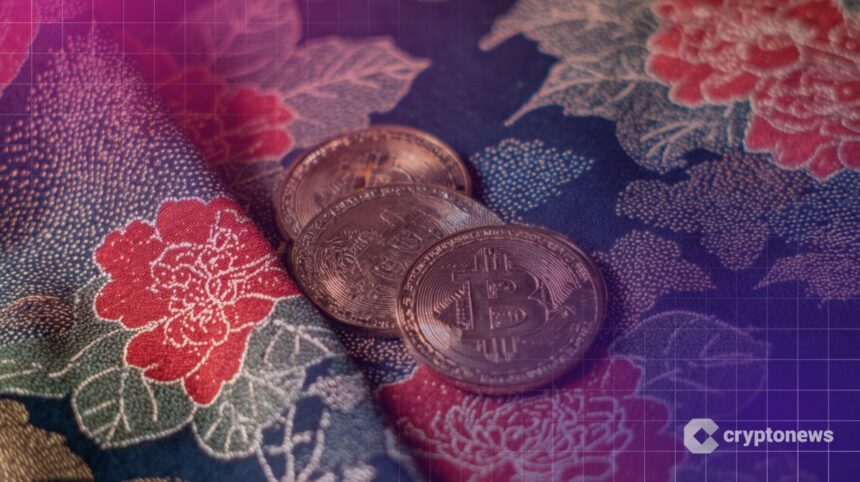In a significant pivot from its historical roots, the renowned Japanese kimono and textiles maker Marusho Hotta is set to change its name to Bitcoin Japan, with the official transition slated to occur during a shareholders meeting on November 11. This strategic rebranding signals the company’s ambitious shift towards cryptocurrency, specifically Bitcoin, as it plans to stockpile Bitcoin (BTC) to diversify its operations.
Marusho Hotta has long been a staple in the Japanese textile industry, revered for its contributions to traditional kimono making since its establishment in 1861. However, in recent years, the company faced declining sales and stagnation on the Tokyo Exchange, prompting its acquisition by the Tokyo-based RIZAP Group in 2017. The shift towards a Bitcoin treasury business follows a critical investment from Bakkt Holdings, a US-based crypto custody firm, which aims to become the company’s largest shareholder and transform Marusho Hotta into a leader in the Japanese Bitcoin treasury sector.
In a recent release, the company announced, “We have decided to launch a new business, the Bitcoin treasury business, so we can expand our business scope and expand into new fields in the future.” This move aligns with a broader trend within the industry, as various traditional firms look toward cryptocurrency to bolster their financial stability amidst plummeting revenues.
Marusho Hotta has also confirmed a new leadership structure to support this transition. Phillip Lord, President of Bakkt International, will assume the role of CEO at Bitcoin Japan, while Akshay Naheta, Co-CEO of Bakkt Holdings, will take on the position of Chairman of the Board of Directors. This new management team is expected to better align the interests of shareholders and directors, fostering a longer-term vision for improved corporate value.
The need for such drastic measures is underscored by the challenges many traditional Japanese retailers have faced in recent years. As noted by the EU-Japan Center for Industrial Cooperation, sales among older retailers have increasingly dwindled. Marusho Hotta and others in the textile industry have not been immune; the company reported a net income loss of roughly 407.32 million yen (approximately $2.7 million) for the last fiscal year.
The trend of established companies in Japan branching into the cryptocurrency market is not isolated. Earlier this year, Kitabo, a synthetic yarns producer listed on the Tokyo Exchange, announced plans to invest approximately $5.4 million in Bitcoin as part of its strategy to enter the cryptoasset sector. Other firms, such as Metaplanet and Remixpoint, have also recently entered the Bitcoin treasury market, demonstrating a growing acceptance of cryptocurrencies among diverse business sectors.
As Marusho Hotta prepares for its transformation into Bitcoin Japan, industry observers will be watching closely to see how this integration of traditional textile craftsmanship with modern cryptocurrency influences the company’s trajectory in the years to come.







